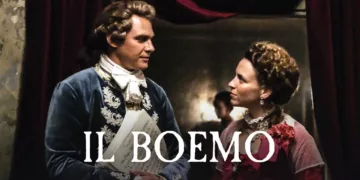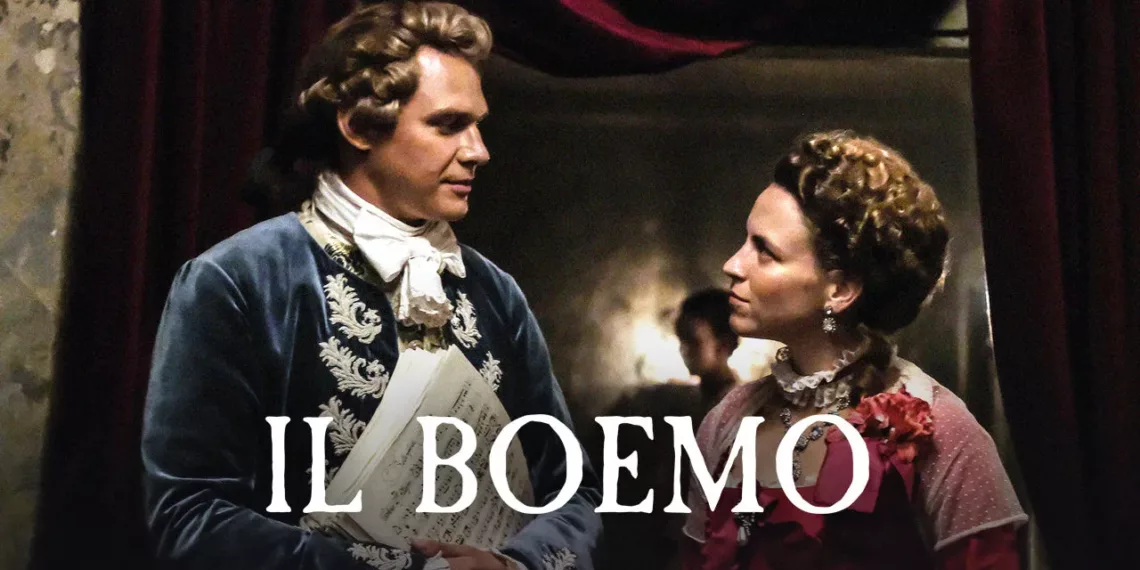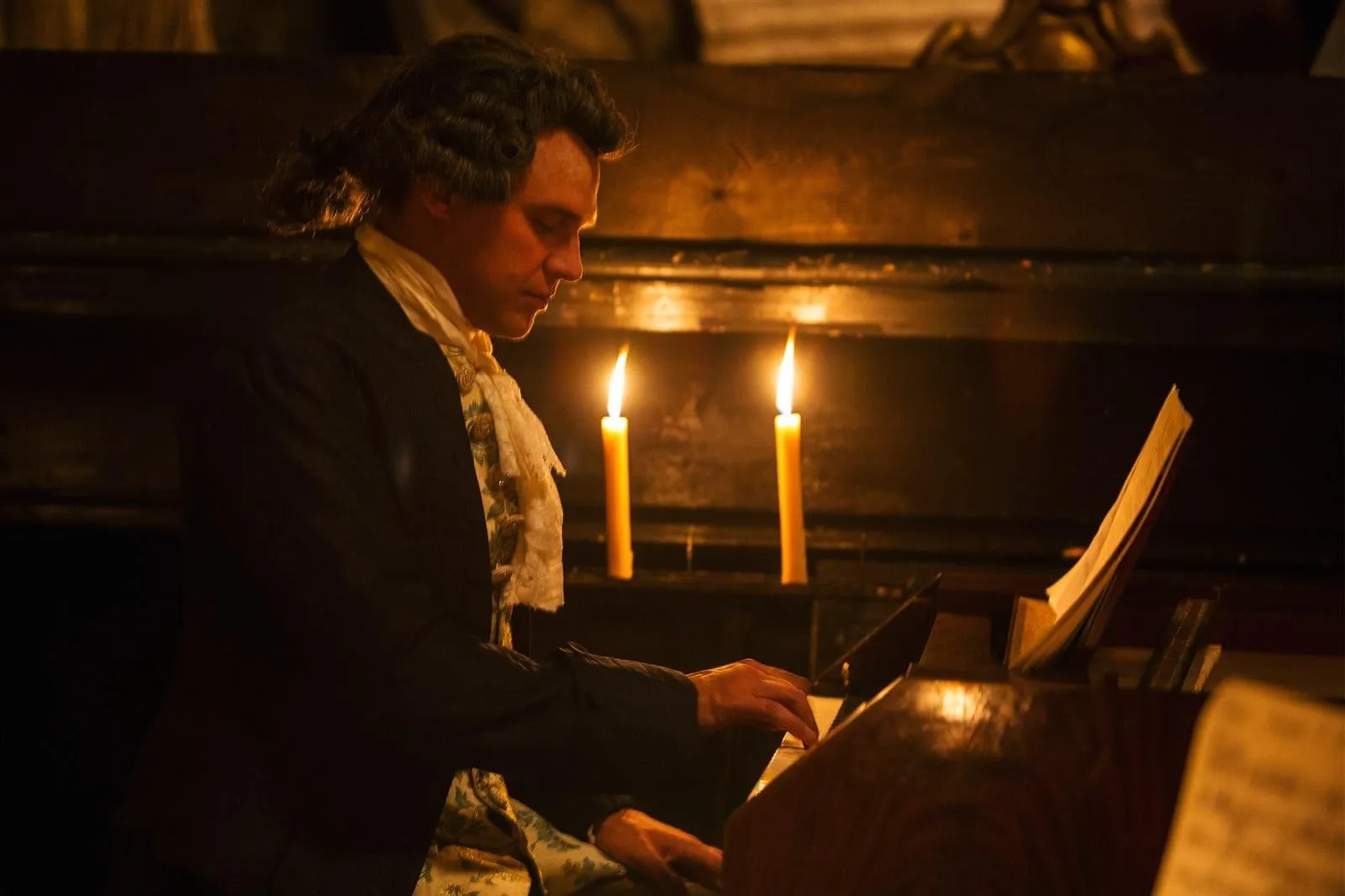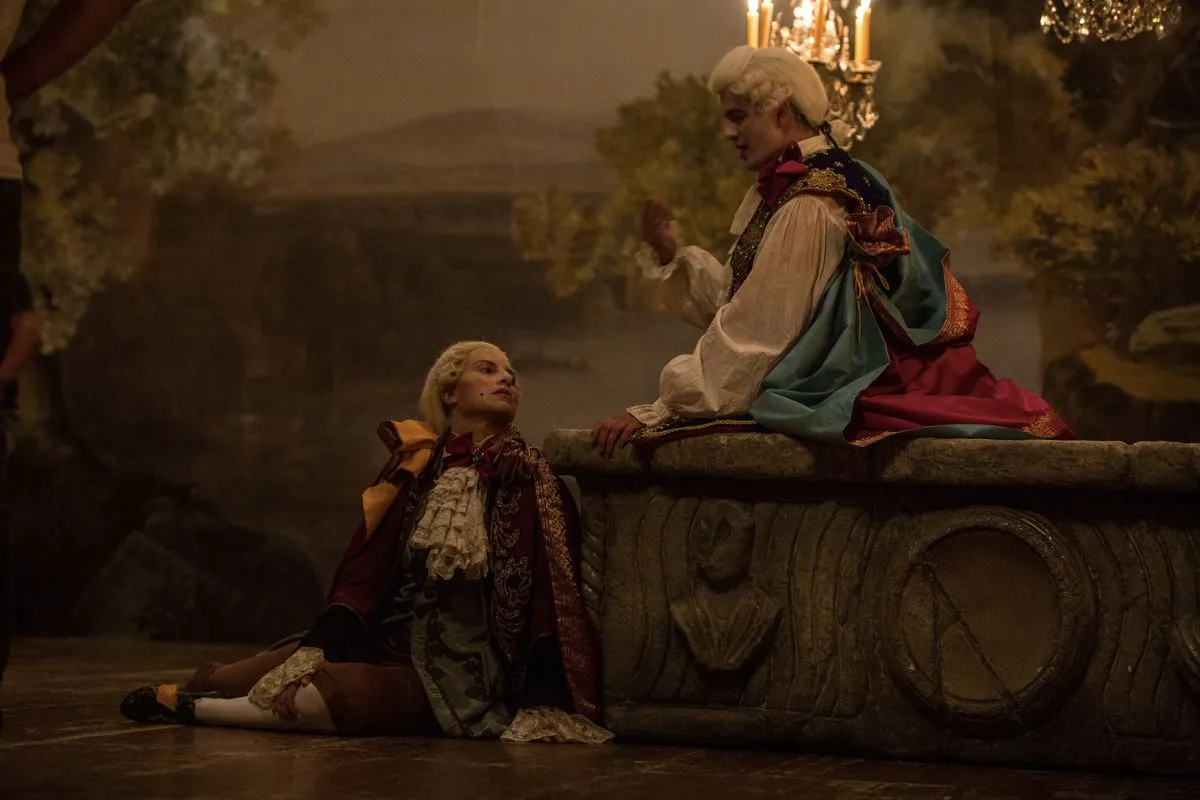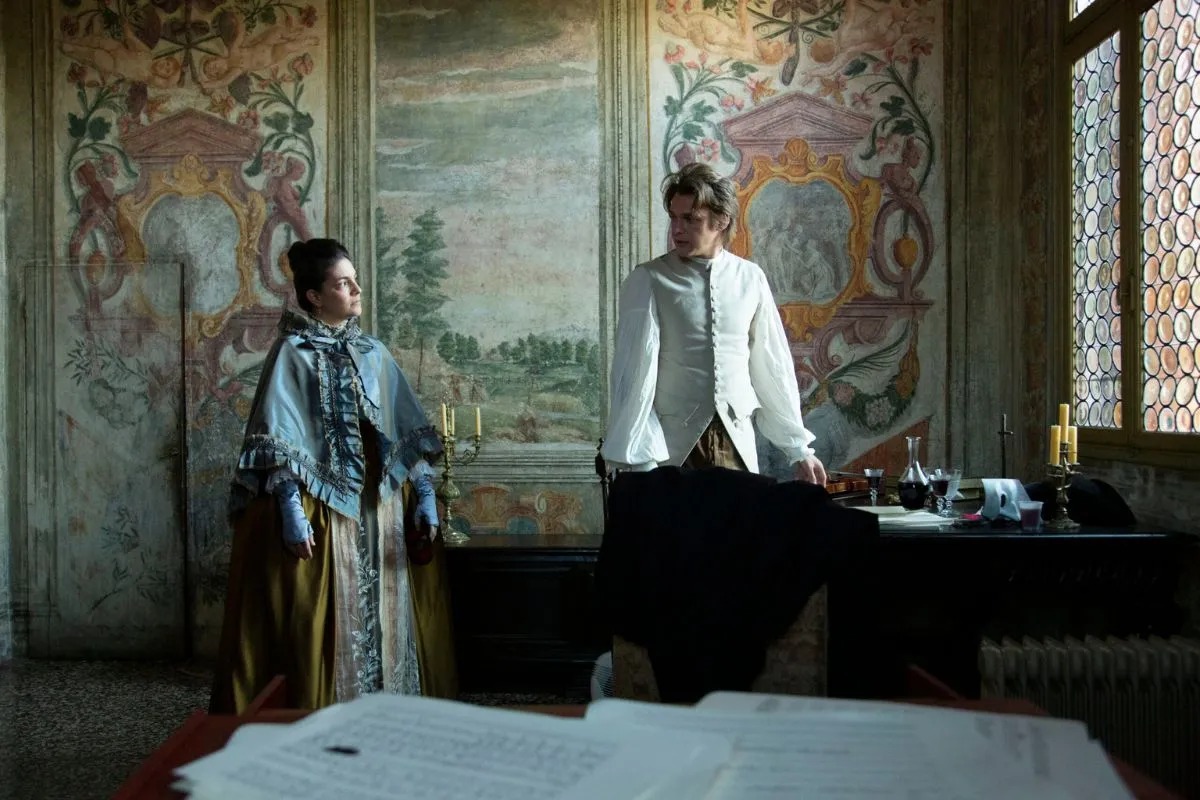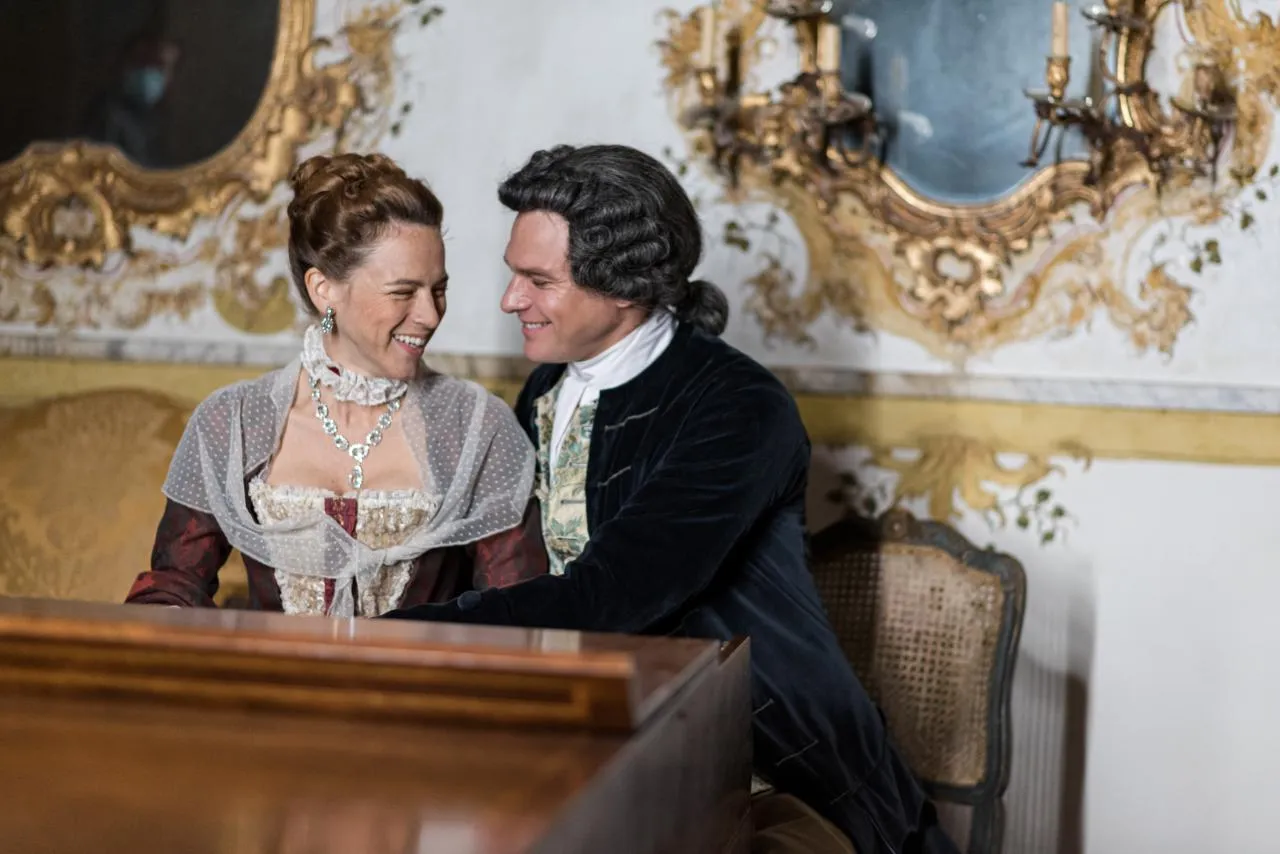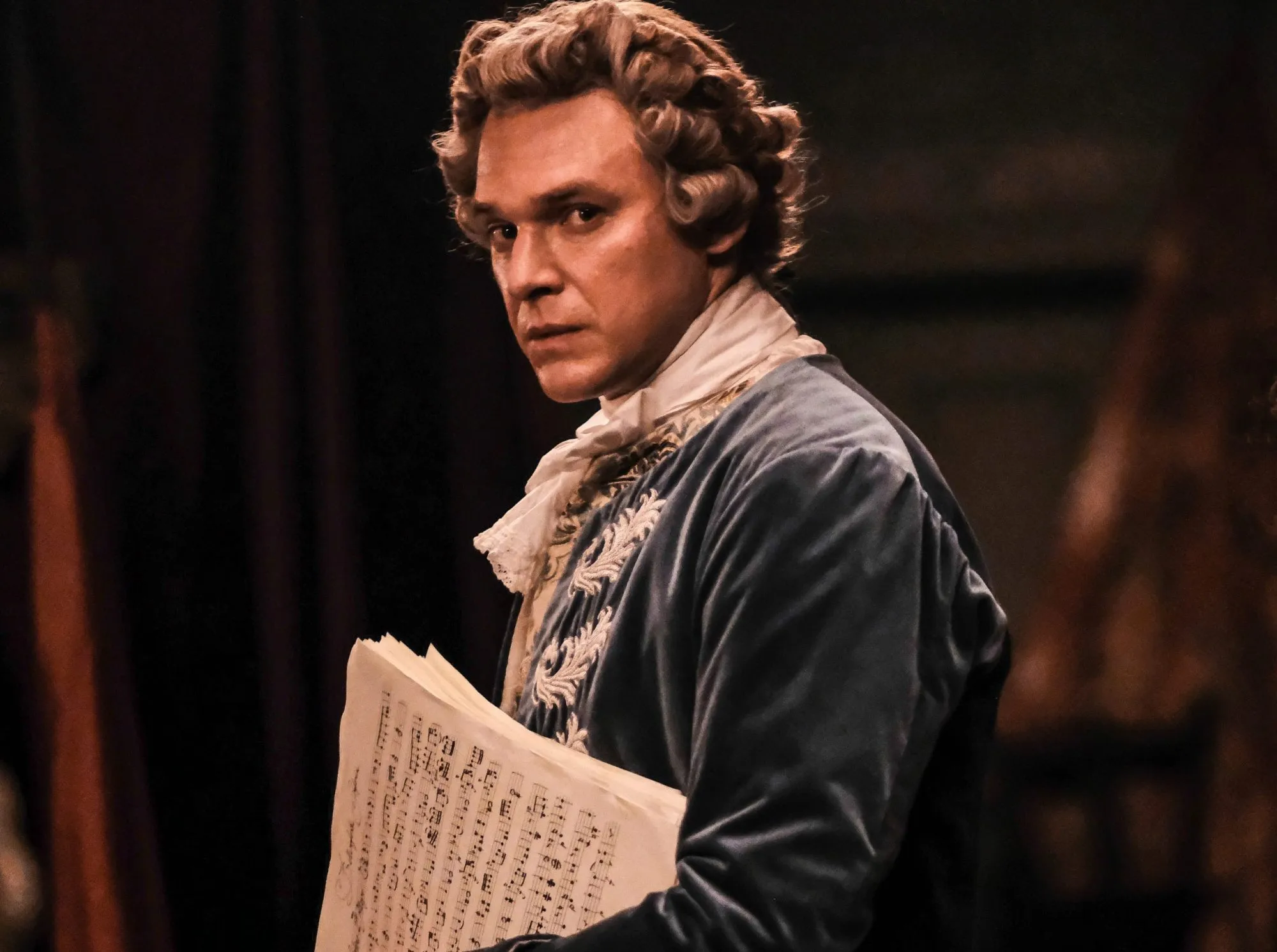Little remains known today of Josef Mysliveček, an 18th-century composer who found immense fame and success in Italy during his lifetime. Born in what is now the Czech Republic, Mysliveček crafted magnificent operas that entranced Italian audiences, placing him among the most renowned musical talents of his time. Yet somehow, within just a few generations, his name and music were lost to the winds of history.
Director Petr Václav seeks to change that with his film Il Boemo. More than just tell Mysliveček’s story, Václav wants to resurrect the composer’s legacy and introduce new audiences to his beautiful compositions. No small task, pulling a virtually forgotten figure out of obscurity.
Through dramatizing Mysliveček’s journey from poverty to prominence and back again, does the film truly do justice to its subject? More importantly, does it accomplish what matters most—sparking modern interest in this talented man’s long-silent musical works?
Only by experiencing Il Boemo can those questions be answered. Let’s watch and see if Václav manages to bring the renowned yet lost maestro back to light once more.
The World of an Opera Maestro
To fully appreciate Mysliveček’s story, it helps to understand the world he inhabited. The 1700s were truly the golden age of opera. Originating in Italy, elaborate musical productions had become all the rage across upper-class social circles in Europe. Stylistically, the Baroque period of grand spectacles was giving way to a new classical refinement as Mysliveček’s career began.
Coming from humble means in Bohemia, a region of the Czech lands, Mysliveček showed musical gifts from a young age. By his early twenties, he’d ambitiously traveled to Venice, the epicenter of 18th-century musical culture. There he studied diligently, quickly learning the composers and styles that shaped the era. Italy offered both creative inspiration and professional opportunities that his homeland lacked.
Once immersed in Italian high society, Mysliveček’s talents were in high demand. He found acclaim alongside the great opera masters of the day like Pergolesi and Galuppi. Though details on his personal life are scarce, letters indicate a fond connection with fellow composer Mozart.
While the film takes some fictional liberties, it sticks closely to the actual historical context that allowed someone like Mysliveček to rise from obscurity to the top of his profession, if only briefly. The opulent yet precarious world of opera depicted provides a vivid backdrop for understanding this forgotten maestro’s short-lived majesty.
The Composer’s Rise and Fall
Il Boemo takes us on a winding journey through Mysliveček’s life. We first meet the composer in 1771 Rome, utterly changed from his former self. Ravaged by disease, he wears a grotesque mask to hide his disfigurement. Only then does the film rewind nearly a decade to Venice, 1765.
There, the talented young Mysliveček begins climbing the social ranks. He finds work teaching music but draws the affection of several noblewomen, including a cello student whose broken heart propels his rise. This introduces him to an unrestrained marchioness who helps him connect with the legendary singer Caterina Gabrielli. Their partnership proves pivotal as Mysliveček’s opera gains acclaim in Naples under her performance.
As his fame grows, so too his string of admirers—though the married noble Anna offers the deepest connection. Ever the ambitious artist, Mysliveček remains unsatisfied and believes his talents are underappreciated. A chance meeting with the teenage Mozart highlights how another has eclipsed him. Soon syphilis takes hold, ravaging Mysliveček’s body and fortunes.
We follow the trials and triumphs depicted in his travels from Venice to Naples to Bologna. While rooted in the biographical record, some creative licenses are taken. At times, more insight into Mysliveček’s inner thoughts and past could have offered perspective. But the film succeeds in transporting us to 18th-century Europe to observe his career rise and fall firsthand.
Bringing the Maestro to Life
Václav’s vision is brought to such vibrant life thanks to the incredible talents behind the scenes. From the sets and costumes to the cinematography and music, every technical element works in harmony to immerse us in 18th-century Europe.
Historically accurate locations like Italy’s opulent opera houses are paired with exquisitely designed props and dresses. Costume designer Andrea Cavaletto outdoes themselves, dressing the entire world of this film. Meanwhile, Diego Romero’s camera casts everything in a golden yet gritty glow that transports the viewer straight to Mysliveček’s era.
At the center is Vojtěch Dyk’s captivating lead performance. He inhabits Mysliveček fully, exuding charm yet subtlety conveying the composer’s inner demons. Surrounded by strong characters, the chemistry feels authentic. Special praise goes to Barbara Ronchi’s nuanced turn as Gabriella.
The opera sequences truly sing, thanks to Collegium 1704’s moving compositions and Václav’s skill at interweaving drama and music. Where the narrative pacing lags, these vibrant musical interludes pick things back up.
While more psychological layers could have enhanced character comprehension, Il Boemo undeniably succeeds in its primary goal: bringing this “forgotten” figure vividly back to life on screen through the synergy of its talented creatives. Mysliveček’s story dazzles, and his music enchants, doing right by this artist’s legacy.
Mysliveček’s Melodies Magnificently Revived
While the plot seeks to educate on this forgotten artist’s biography, Il Boemo’s true triumph lies in its musical highlights. The compositions of Mysliveček finally receive the showcase they deserve, performed brilliantly by Collegium 1704. Under Václav Luks’ skilled baton, these Baroque pieces are brought to life with expertise and evident passion.
Hearing Mysliveček’s operas fully voiced by gifted singers like Simona Saturova makes clear why he once enthralled Georgian audiences. The soaring melodies transport the listener, as they must have centuries ago. Whether joyous montages of the composer’s rising fortunes or heartbreaking arias reflecting personal loss, the marriage of music and emotion leaves an indelible mark.
Scenes where drama seamlessly melds with these moving scores constitute the film’s most poignant moments. It becomes easy to understand how such gifted musical storytelling made Mysliveček a superstar of his day. Even dialogue scenes hold warmth thanks to the score’s ambiance.
Ultimately, Il Boemo does more than tell one man’s biography—it offers a gift to modern audiences. Through reviving this long-lost maestro’s magnificent works, Václav helps secure Mysliveček’s well-earned place in musical history. The lush performances alone justify watching this biopic and may inspire many to explore this resurrected artist’s full body of forgotten operas. On that merit, the film achieves its goal of paying long overdue homage to a musical pioneer.
The Universal Themes Within Il Boemo
Under the lavish costumes and melodic scores, Il Boemo subtly examines enduring themes still relevant today. It depicts 18th-century Italy as a society both dazzlingly progressive yet stubbornly prejudiced.
As a woman, Gabrielli’s talents face dismissal while the King casually disrespects them. The film subtly honors hardworking female artists who persevered despite facing an uphill battle. Meanwhile, as a Czech in Italian circles, Mysliveček must navigate complex politics as an ambitious outsider to achieve renown.
His fleeting fame is also a reminder of mortality, with Mysliveček’s decline serving as a commentary on the fickle nature of celebrity. While the film celebrates the decadence of the artistic Golden Age, it acknowledges a darker reality underneath the luxuriance.
Overall, Václav’s biopic values enrich modern audiences with Mysliveček’s musical gifts over clinical psychological profiles. Themes of navigating social barriers to success, as well as life’s impermanence, give this period story an insightful contemporary edge. Il Boemo subtly weaves its subject’s personal struggles into resonating themes that felt just as real in the 18th century as they do now.
Revisiting a Forgotten Master
Il Boemo set an ambitious goal: resurrecting Josef Mysliveček’s legacy and sharing his gifts with modern audiences. In that regard, Václav’s film can be deemed a qualified success. While its period drama conventions won’t captivate all viewers, the film honors its subject authentically through its grand production values and exquisite musical performances.
Mysliveček undoubtedly benefited from this fresh exposure, with his genius compositions introduced to new ears. However, the narrative focus on political and romantic intrigue sometimes overshadows psychological insights. Still, one comes to appreciate this long-lost maestro as more than a backdrop character in his own story.
Ultimately, the film leaves me wanting to explore Mysliveček’s full body of work further. And in raising awareness of his extraordinary yet fleeting career, Il Boemo accomplishes what matters most—keeping memory of this gifted artist’s legacy alive for generations to come. Whether individual audiences find the drama consistently engaging seems less critical than ensuring future music lovers can rediscover the magic of this composer. On that level, Václav’s vision for resurrecting a Renaissance master achieves triumph.
The Review
The Bohemian
Il Boemo succeeds handily in its chief goal—raising awareness of the gifted yet forgotten composer Josef Mysliveček. Václav's film dazzles most in musical presentation, capturing the beauty and spectacle of opera with tremendous passion and care. Its occasional narrative lulls are outweighed by finally exposing modern audiences to this talented artist's long-silenced works. Overall, the film serves as a fitting tribute to Mysliveček's extraordinary talents and ensures his legacy endures for future generations of music lovers to discover.
PROS
- Gorgeous period production values and costumes
- Phenomenal musical performances of Mysliveček's compositions
- Authentic recreation of 18th-century European settings
CONS
- Narrative pacing drags at times.
- Main character could have been developed more psychologically.
- Relationship to actual history takes liberties
